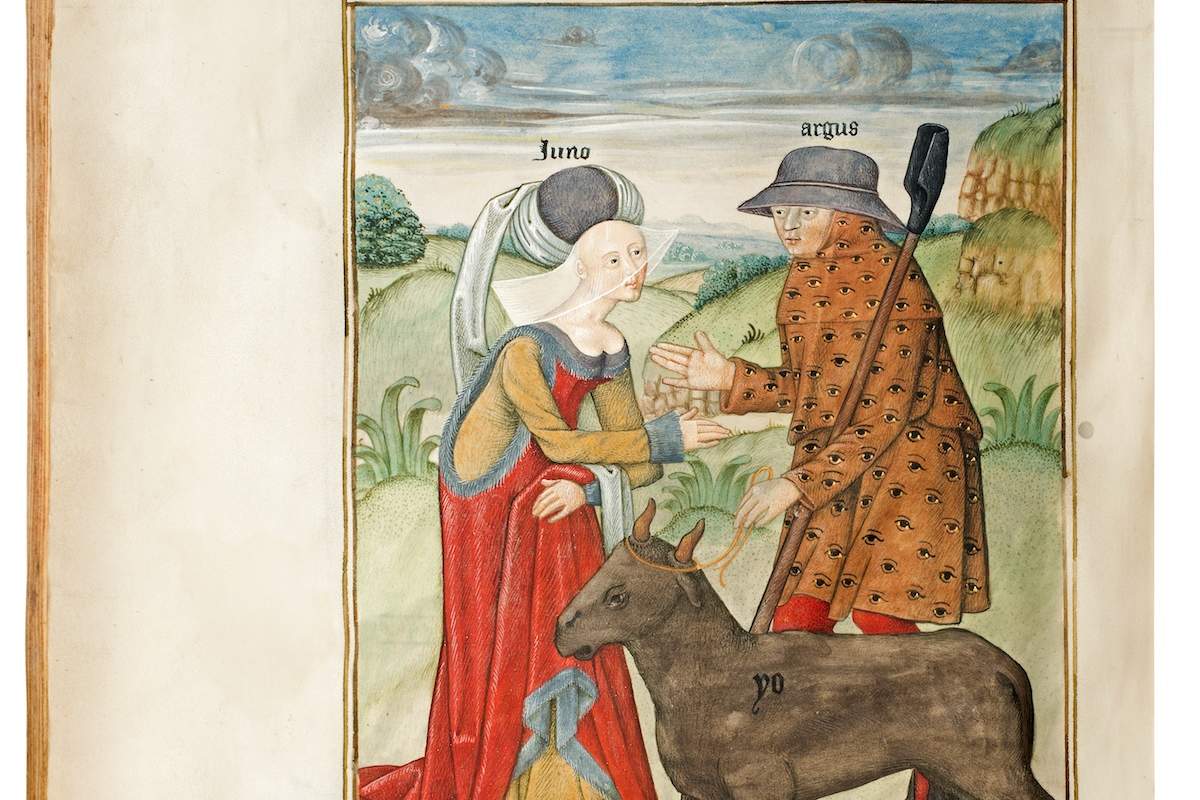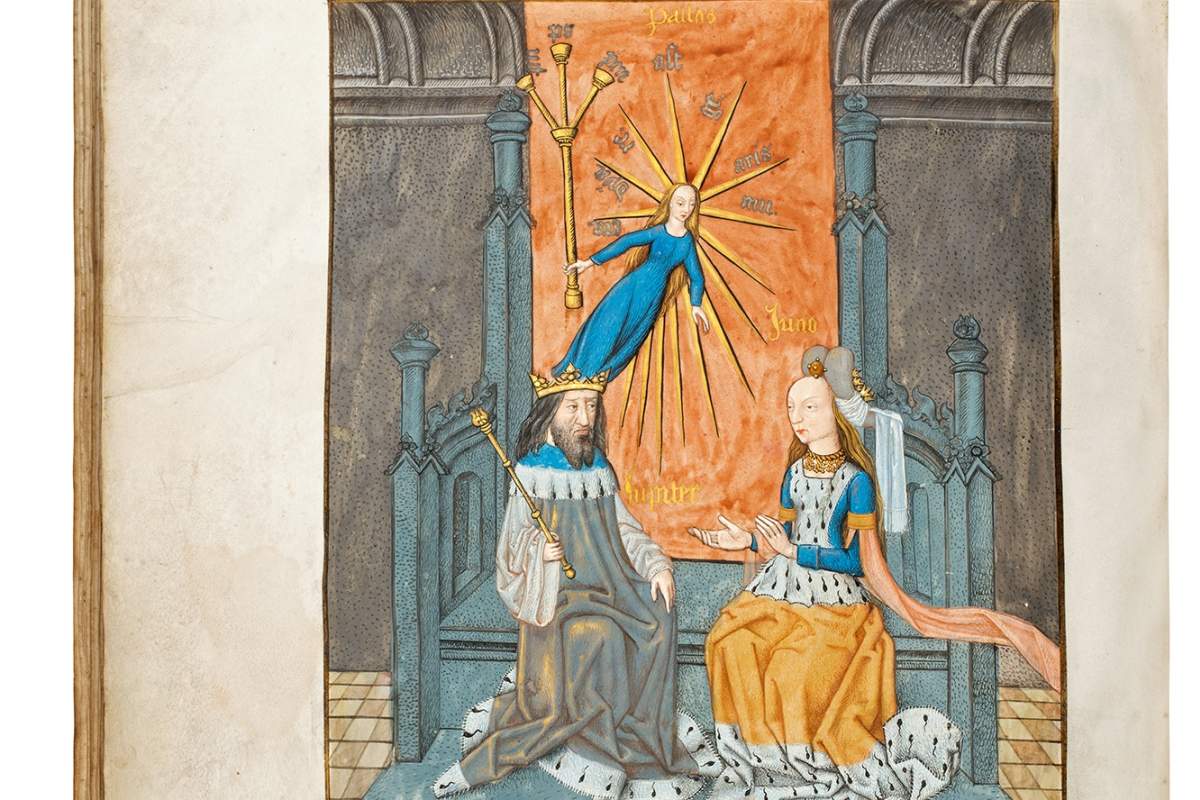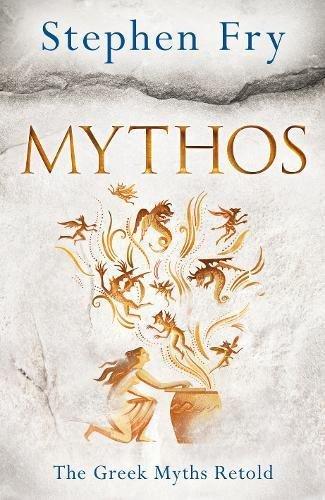-
Mythos: Antiquity forever, forever Antiquity - 2
More common ground for Stephen Fry and Raphael de Mercatellis: the story of Yo and Argus Juno, Argus and Yo as depicted here, tells us the fate of mortals in the hand of the gods of Antiquity.
Juno, Argus and Yo as depicted here, tells us the fate of mortals in the hand of the gods of Antiquity.Two miniatures in the manuscript made for Raphael de Mercatellis (see previous blog post) tell the mythological story of Yo and her warder Argus (a story told by Ovid [d. 17 CE], Metamorphoses I: 601-788). The illustrations show that after Jupiter fell in love with Yo, he turned her into a heifer to conceal her from the jealousy of his wife Juno. Juno then set the herdsman Argus, who had 100 eyes all over his body, to guard Yo.
Stephen Fry also lets us follow Zeus-Jupiter in this example of one of his extra-marital escapades, when both he and his wife Hera-Juno bring about a terrible fate to the innocent protagonists Argus and Yo.
Argus was a loyal follower of Hera-Juno. He also possessed a very special gift, which made him a perfect guardian of Yo. He had a hundred eyes…. Obedient as ever to Hera's will, he stationed himself in the field, fixed fifty eyes on Yo and let the other fifty range independently around and up and down, on the lookout for marauders. … Zeus knew his limits of his own cunning, however, so he called upon the wiliest and most amoral rogue on Olympos to aid him. Hermes-Mercury understood right away what needed to be done…. For two hours he played (a set of pipes) and he sang. The music, the afternoon heat, the scent of the poppies, lavender and wild thyme, the soft lapping and purling of a nearby stream - slowly Argus's eyes started to close, one by one. …. With Argus dead, Juno, who had seen what happened, sent down a gadfly which stung Yo so painfully and persistently that she bucked and screamed and galloped away, far from Zeus's reach. (Fry 2017, pp. 190-192).
-
Mythos: Antiquity forever, forever Antiquity - 1
Common ground for Stephen Fry and Raphael de Mercatellis Birth of Pallas as illustrated for Raphael de Mercatellis, Bruges, ca. 1500
Birth of Pallas as illustrated for Raphael de Mercatellis, Bruges, ca. 1500For centuries, books have been written to share knowledge, inspiration, and discoveries. What many of us may not realize is that the Middle Ages determined what texts were handed down from Antiquity onwards. Had it not been for the scribes and patrons of late Antiquity and the Middle Ages, the entire literature of Greece and Rome would have perished. Medieval illuminated manuscripts gave stature to these ancient texts and thus contributed, to a large extent, to their preservation.

Last November, Stephen Fry, the famous British comedian, actor, long-time quizmaster, as well as successful author, published a retelling of stories that the ancient Greeks invented about the birth of the universe, their gods, and the creation of humankind (Michael Joseph - Penguin Books 2017).
As a child, Stephen Fry fell in love with these stories, which have never left him since. His lively, funny, and erudite book conveys this passion for Greek-Roman myths, which the author shares with numerous predecessors as well as contemporaries. One such a "predecessor" is the Flemish bibliophile, Raphael de Mercatellis, and here we present a medieval illustration from his library that attests to a myth also in Fry's book (we give here only the Latin names, not those in Greek).


